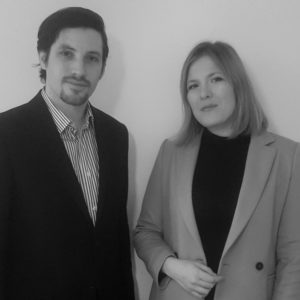

Sébastien Lachaussée & Elisa Martin-Winkel
Direct to VOD between strain and expectations on the French Film market
In 2017, the Cannes Film Festival included surprises regarding VOD by gathering two films produced by Netflix and not to be released in theatres in the official selection: « Meyerowitz Stories » by Noah Baumbach and « Okja » by Bong Joon-Ho. This situation raised many reactions and the Cannes Film Festival announced later that from 2018 it must be possible for any officially selected film to be released in French theatres, which excludes the film designed to be exploited direct to VOD.
This situation raised difficulties regarding the films produced by Netflix, which do not wish to release its production in theatres, in particular regarding « Roma » by Alfonso Cuaron’s that was foreseen to be in the official selection. Both the festival and the broadcaster remained uncompromising, resulting in the notable absence of Netflix in Cannes.
Ted Sarandos, chief content officer for Netflix, deplored this situation, and strongly criticized the position taken by the Festival, stating that : « Cannes Film Festival chosed to celebrate distribution rather than cinematographic art. We are 100% in favor of cinematographic art and so are all the other festivals in the world. We hope the festival will modernize ». Later, Thierry Frémaut by stating that it was difficultly understandable why Netflix refuses the out-of-competition selection, while it does not require a theatrical release.
Nevertheless, the very existence of such films raises the question of the definition of a cinema motion picture, that of the place of VOD in terms of audio-visual creation and that of the new actors such as VOD platforms. (Netflix, Amazon Prime Video, e-cinema.com…) regarding both broadcasting and production.
A strategy to counter French media chronology
In France, a timeframe is imposed between the release of a movie in the cinema and its broadcast on other media (TV, video, VOD …). This system makes it possible to retain « broadcast windows » for distributors of theatrical films and for channels that can thus reimburse the investment they make in the production of films. (http://www.csa.fr/Television/Le-suivi-des-programmes/La-diffusion-des-oeuvres/Les-obligations-de-diffusion-d-aeuvres-cinematographiques/Chronologie-des-medias).
French time frames are outdated, and nowadays are criticized as being too long by many actors in the sector. Still, they can not agree on new provisions that have been under discussion for about ten years. We can notably note that waiting period for S-VOD is of 36 months from theatrical release. This time is lower for VOD and can even be lowered up to 4 weeks on request for specific exemptions, but remains incompatible with an immediate exploitation on VOD. Accordingly, a first broadcast in VOD exclude a film from the French theaters and allow to circumvent the French media chronology. If the producer wishes a theatrical release, it can also gives up the direct to VOD in France, and focus on other territories. Moreover, when these films are out of the cinematographic field, they can also benefit from television commercials, which is prohibited for cinematographic works.
A growing VOD market
The last few years, physical sale of videograms has been steadily declining, and in 2017 the video market (physical and dematerialized) has reached its lowest level since 1989. However, there is a clear increase of the VOD market and the VOD sales revenue increased by 32,3% between 2016 and 2017. It can also be highlighted that spending on dematerialized programs represents more than 20% of the total expenditure of French households on audio-visual programs.
In this context, the French National Center for Cinematography developed automatic and selective aids for VOD available for VOD service publishers in France, however no aid scheme is specifically dedicated to the first broadcast in VOD This is explained by the fact that traditionally Direct to-Video is discredited in France. Nevertheless, we can hope, and note to a certain extent, a change in public attitudes. VOD seems benefit from a great surge of popularity, with the appearance of a VOD Festival under the aegis of the CNC, in particular to propose original films.
As early as 2015, Grégory Strouk from Wildbunch had pointed out the need to consider Direct to-VOD as a real media and stated that « if we only release second-category films in e-cinema, then it is unfortunately not a model. ».
It is about developing a new support of diffusion and not about limiting the damages for films not suitable for a theatrical release.It should be noted that this is still true so far, although efforts have been made by Netflix to produce exclusive and quality e-cinema, the audience remains significantly lower on the platform for such content in comparison with the series. In this context, we can highlight the launch of e-cinema.com on December 1, 2017 that releases of one foreign unseen film per week since then. The platform also announced at the Deauville film festival that they would like to invest in production in France, on relatively “avant garde” projects with rather low budgets (1,5/2 millions euros).
We witness a growing market, which offers not only a new space of visibility for audio-visual works but also new possibilities in terms of production, even though many professionals in the sector still seem resistant to the idea of producing a film without a primary theatrical release. It is notably the case for the directors, who when signing the assignment of rights for the production of a feature-length film, oblige the producer to obtain his approval to not broadcast the film in theaters at first. It should be noted that agreements may provide for this approval ab initio, which, in the interests of production, can be useful on films likely to be financed by platforms such as Netflix or Amazon.
Impressive investments
Beyond the purchase of VOD rights from the producers that allows to partially financing the films VOD platforms are also involved in the development and production of original works.
As previously mentioned: Netflix is a producer of original contents, this concerns the production of series but also that of feature films. For the year 2018, the company has announced spending between 7 and 8 billion dollars divided between its rights acquisitions and the development and production of original contents.
Reed Hastings, founder of the company argued « Our future depends mainly on our original contents ». This strategy is supported by a growing recognition: producer was indeed awarded at the ceremony of the Oscars for his documentary short film « White Helmets ».
Within this context, French production is taken into account and Reed Hasting clearly announced in 2017 that “ (their) strategy is to willingly produce French contents and to invest in the creation, in order to ease the tensions with the professionals” and to significantly increase their investments. This is notably evidenced by the release on the platform of « Blockbuster » of Julie Hygreck at the beginning of the year and that of « I a not an easy man» by Eléonore Pourriat last April, both coproduced by two French productions companies.
Regarding series, major actors entered into productions of content dedicated to VOD exploitation. The examples are numerous. We can evoke the many productions of Netflix, notably regarding French production the two first seasons of « Marseille » and the first one of « Osmosis », adapted from an Arte series and to be released on the platform in 2019. Apple also contracted with one of Steven Spielberg’s companies to produce « Fantastic Stories » or Amazon Prime Video that develops a series on the universe of Lord of the Rings…
With the growth of the number of actors, of their investments and of their recognition: a new market and a new process of broadcasting and creation grow simultaneously that both producers and authors need to consider, especially since we note that the sales revenus of the SVOD in France has increased by 90% between 2016 and 2017 according to a CNC study of May 2018, suggesting major prospects for the consumption of films.
Such new projects should be governed by secure contracts taking into account the specificities of this new branch of audio-visual creation and implementing a balance between the different protagonists.
SHARE THIS ARTICLE
CONTACT
OUR OFFICES
INFORMATION
sl@avocatl.com
PHONE
+33.1.83.92.11.67
Address
121, boulevard de Sebastopol
75002 Paris
5th floor / Staircase A
Follow us :
Newsletter
Please enter your e-mail :
